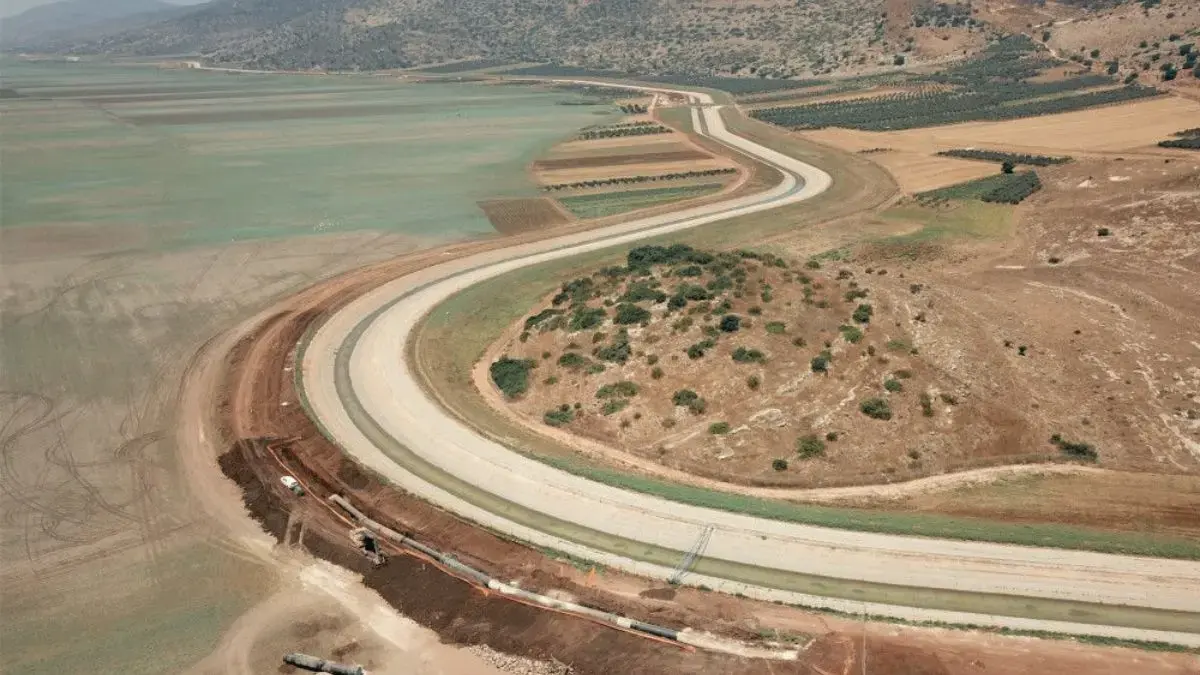Israel is facing a rapid population growth and an alarming water shortage. In this context, the National Water Carrier (NWC) stands out as a flagship project, capable of delivering 1.7 billion cubic meters of water per year. This complex network, which spans 130 km, combines pipelines, tunnels, and reservoirs, illustrating not only Israeli ingenuity but also positioning the country as a leader in sustainable management of its water resources.
Essential Information
- Israel is grappling with a population growth and a water shortage.
- The emblematic project, the National Water Carrier (NWC), initially has a capacity of 450 million cubic meters per day.
- Technical innovations have made it possible to overcome elevation challenges and reduce evaporation losses.
- The NWC, despite international controversies, illustrates Israeli ingenuity in water management.
Israel and Its Rapid Population Growth
Israel is facing a critical situation regarding water resources, exacerbated by rapid population growth. As the population continues to increase, the need for water becomes increasingly urgent. This country, which has always faced challenges related to water availability, must innovate and adapt its infrastructure to meet the demands of a growing population.
The National Water Carrier: An Emblematic Project
The National Water Carrier (NWC) offers an emblematic solution to this problem. Designing a system capable of transporting water from one region to another is a technical achievement, with an initial capacity of 450 million cubic meters of water per day increased to an impressive 1.7 billion per year. This colossal project has been established to ensure a sustainable and adequate water supply for all regions of the country.
A Complex and Innovative Network
The NWC network consists of pipelines, tunnels, and reservoirs, stretching over 130 km across diverse terrains. This infrastructure is essential for transporting water from natural sources to urban and agricultural areas. Elevation challenges had to be overcome, necessitating the construction of pump stations and reinforced tunnels to ensure continuity of water supply.
Reducing Evaporation Losses
Another dimension of this innovation lies in the design of the network to minimize evaporation losses. One of the most significant examples in this area is the Eshkol Reservoir, specifically designed to address this risk. These technical improvements make it possible to retain a larger quantity of drinking water, which is crucial for a country as dry as Israel.
A Historical Transformation
The NWC project was realized over eight years, from 1958 to 1964, and its success makes it an example for other countries facing similar challenges in water management. Despite some international controversies surrounding its development, the NWC is a brilliant demonstration of Israeli ingenuity in managing water resources.
Israel, A Leader in Sustainable Water Management
All of this positions Israel as a leader in sustainable water management, strengthening its role on the international stage, both technologically and diplomatically. Through the NWC, the country not only secures its water supply but also inspires other nations to consider innovative solutions to address water issues in a rapidly changing world.

